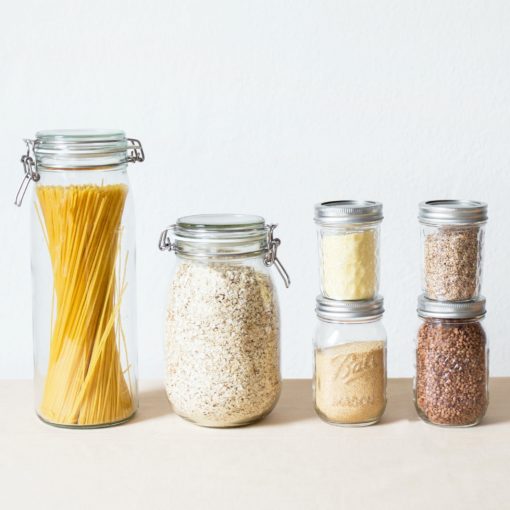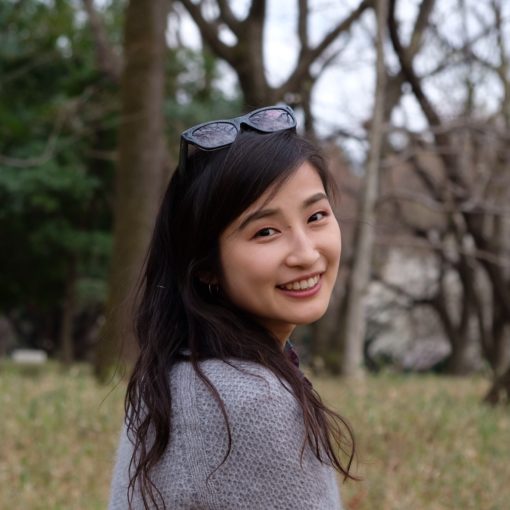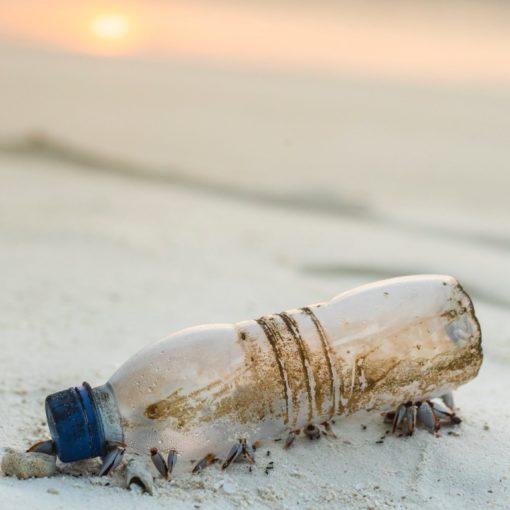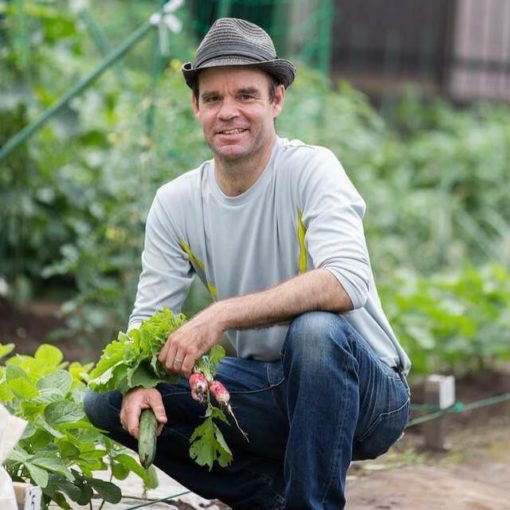Mona is a strategic communications consultant. Born between German and Japanese parents, she spent most of her life in England, before moving to Japan in 2016.
She founded No Plastic Japan in 2018 to raise awareness around our consumption habits and the waste it creates – one of its main activities is the replacement of plastic straws with stainless steel ones for individuals and businesses. In collaboration with a variety of stakeholders, Mona works on different communications and sustainability challenges.
Mona took part in our sixth edition of Conversations with Green Changemakers in Japan and you will find below, the player to listen to the full interview.
This podcast is also available to listen on Apple Podcast, Google Podcast, Deezer, Spotify and Youtube.
If you want to know more about Mona’s work with No Plastic Japan, check out her website, or Instagram as well as Nue by Totoya Instagram.
Feel free to reach out to Mona if you have any questions.
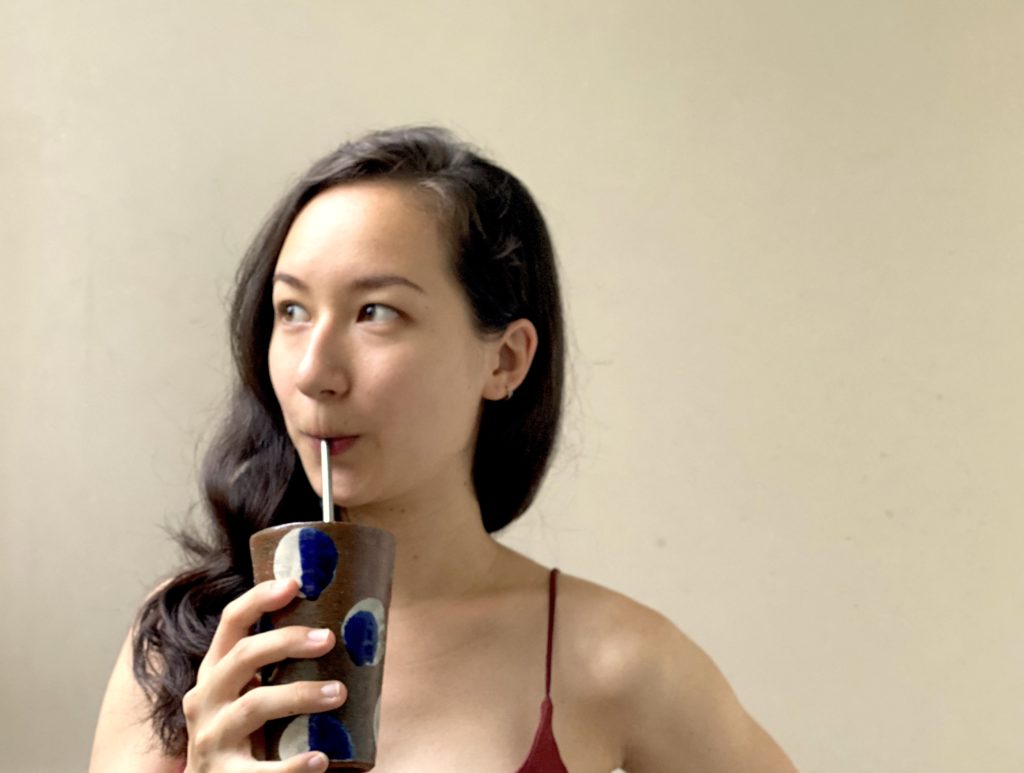
How did you become aware of the climate change and the plastic pollution issue?
Since I have been at school, I have always carried my bag and my bottle with me but it wasn’t necessarily like I was doing it consciously for the environment. It was more the norm. But coming here, I didn’t see many people do that around me. Besides, working in a regular office, I could see my colleagues go to the konbini downstairs, get a bag, get a bento, get a plastic fork, etc. and I started noticing those getting thrown away after that lunchtime and how much waste this created.
So I think moving to Japan was definitely a trigger for me and helped me to realise that whatever I was doing subconsciously wasn’t even a thing here. I had been to Japan many times, but just as a tourist, visiting family. But when you actually move here and you do your daily shopping, you realise all the waste that you produce.
Why did you start No Plastic Japan?
I started No Plastic Japan two years ago as a way to bring other voices together. It started with a personal anecdote. I was in a cafe which was focused on organic foods which I associate also with ecological things and not just about health. But they were using a lot of single use plastics.
So I reached out to them to suggest alternatives. But I felt that it may have more impact if I was signing that email on behalf of a community rather than just as an individual.
So that is how I started No Plastic Japan and the Instagram account. I think two years really made a big difference. And there’s now a much bigger community of people involved in environmental things!
Can you tell us about your personal journey to reduce your waste and your tips for plastic-free living in Japan?
It depends on where you go shopping. In terms of supermarkets, I think some are better than others. So the standard things that I need to get, I would go to a normal supermarket near me. There’s a few things I can usually get plastic-free, such as cucumbers, tomatoes, broccolis. I usually mix the supermarkets I go to depending on where I know I can buy certain items plastic-free in one and some other ones in another one.
I actually don’t eat meat at home and I’ve not cooked meat in six years maybe. So I kind of avoid that whole aisle and all the trays and packaging that go with it.
When it comes to other things, since lockdown, I’ve kind of thought about how to shop a little bit more as well. And I recently decided to order veggie boxes, which comes from Chiba so it’s not too far away. Of course there’s the shipping which adds to the environmental burden, but I think supporting small farmers that focus on natural organic farming is more important right now than thinking about the cost of shipping.
In terms of bulk shopping in Japan, there are certain things like miso paste, tofu and rice that you can still buy in bulk in older shops. So when we talk about zero waste shopping in Japan as if it is something new, it is actually more shopping habits that we are bringing back.
Can you tell us about the zero waste shop you are part of in Tokyo, Nue by Totoya?
So about a year and two months ago, I met the lady who owns Totoya, which is an importer of organic produce to Japan. She is very passionate about making sure that she meets all the producers, the growers of the foods etc., so that she knows exactly who’s producing it and how and she also makes sure that they try their best to send it over without excessive packaging and in packaging that can be reused.
She approached me to be part of the zero waste market that they were running at the UNU farmers market and she asked me if I wanted to sell my straws there. We sold my straws and some package-free vegetables. Indeed, if you have been to UNU market before, you may have noticed that a lot of items are still packaged in plastic. So we were providing that kind of zero waste area in the market.
We were just talking and she said wouldn’t it be great if we could have more of this in the shops. And I was like I’m up for it! And it was really as simple as that.
Two months later, we opened Nue by Totoya which is a zero waste shop in Tokyo that opens on Sundays. The reason why it is on Sundays is because we only see it as a model shop. So we don’t really want our shop to become bigger or to have franchises etc. Our goal is to present what an ideal zero waste shop could look like. By trying new things out in our shop, we then share that knowledge with other people that want to start a shop that has a bulk section or people who already have a shop but want to start a bulk-buy corner in it.
If you visit us, you can buy things like pasta, olive oil, nuts, all those sorts of things package free. So you just have to bring your own containers.
Everything went really fast and since we started we’ve had new members join us, someone who’s doing more the accounting side and someone in charge of the business development. It is small team of just four of us, but there’s a lot of people that want to help out and we sometimes have people volunteering as well.
What kind of customers do come to your shop?
It’s a mix of international people, Japanese people or locals. We do get a lot of people who come with the intention of shopping there and sometimes from quite far. So they come with their bags and containers, which is super helpful to us, because we actually don’t provide any packaging that is single use, which means no paper bags either. Whenever someone comes unprepared, we can do sell organic cotton bags that they can wash and reuse or we have what we call community jars for pasta sauce jars for example. We take these in from people that have them lying around their house, we clean them and then provide them as containers for customers to use.
A lot of people come prepared as they are really looking for the zero waste shopping. A lot of people message us before they come to make sure we are open as they are actually coming from another prefecture.
A majority of customers, we end up talking for at least 10 minutes. So it is not really like a normal shop where you go in, you buy something and you leave straight away. It’s a lot of conversation on zero waste lifestyle and then sometimes we have local people that live near Yoyogi who come because they are curious. We have had actually mainly just positive feedback when we explained what the shop is about.
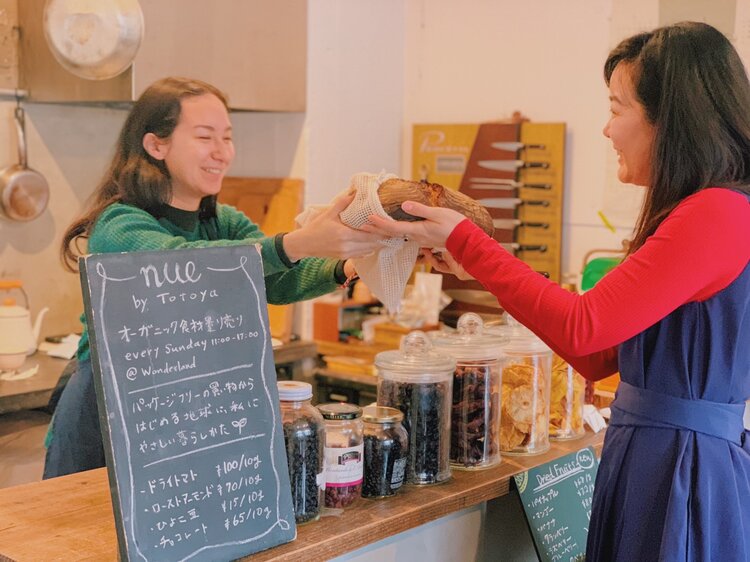
What was the impact of COVID-19 on the shop and the way people approach bulk buying?
We changed our shop hours for a couple of months, made it shorter and moved to Friday night. So that it was open only for necessary things you get after work. We didn’t want to close completely as we thought it is a shame if environmentally friendly businesses were to close when other places who are packaging things excessively are still open. But we also started a delivery service during those two months, which was actually a test for us as well, to see whether we could ship things zero waste.
I think it’s important to say that zero waste has different definitions and people think about it differently. For us, it was about doing zero waste deliveries by reusing cardboard boxes that we found or that people gave us. We also had a returnable system for liquids’ containers and cotton bags that people could send us back. For example, we sold things like honey, olive oil, dried berries that we put in jars that people either paid deposits for or that they had the option to buy it as well. So it was a good way for us see to see if this could actually work although it was on a small scale.
As an experiment it was successful, however if we wanted it to take off, we would need a bigger system. Indeed, you need a facility to wash the containers properly, to save time and make it more efficient, etc.
So I think it would not be us that would create this system. I really think if a konbini chain was to start the sort of deposit system, whether it’s for cups or containers that would be ideal and we would be more than happy to collaborate with other people on things like this.
Do you feel that having unpackaged goods is preventing people from buying?
I mean personally for me I go for the opposite, but as I was talking to different people they said that especially during COVID, people will choose packaged products over unpackaged ones or sometimes, people try to take the unpackaged products that are underneath so they have not been touched by other people. etc which I find funny because you usually wash vegetables right before you eat them.
But sometimes, we might be in a bubble of people who are interested in a more eco friendly lifestyle, so I always think that everyone must be looking into reducing their waste. But I need to remind myself that it is really not the case when you step out of that circle.
So I think it’s a slow progress to make people change their perspective and consider unpackaged as a better product. Because today, it might seem like it’s cleaner and so on.
Have you noticed an increases awareness about plastic pollution over the last few years in Japan?
For example, the straw movement is not something new. But I feel like in Japan it has only really started to take off over the last year or so. Also, there are more and more accounts on social media that are coming up with really good content on how to be more environmentally friendly. Students especially are really active in this space. I think there is a really good movement happening right now of young people looking for change in Japan such as initiatives like Fridays for Future in Tokyo and other cities.
I feel like the global movement does influence Japan too. But I think the approach is a little bit different here. If I think about the straws I sell, I don’t really advertise or anything just because I only want people who need it to buy it.
I think it has become a bit of a fashion statement sometimes, which is not necessarily what I’m aiming for. However it is relatively effective in Japan when something is a trend to get people interested and talking about it. This is probably very different from Europe where being politically active is more of a statement, which is not so much the case in Japan yet. Even if reusable straws are more of a fashion statement for some people, it is ok if that is what is needed to get them started and more interested in the topic of sustainable living.
Indeed, we shouldn’t forget that at one point, we were all not eco-friendly most likely. I saw a photo on my phone from four years ago, and I just had a Starbucks takeout.
So we should remain humble and remember where we came from in order to get others onboard.
What resources would you recommend?
An easy way to make a big impact is switching energy provider to a renewable energy provider:
Instagram inspirations:
In English:
@eco.de.iko
@cocoeco_jp
@futureearth
@maxlamanna
In Japanese:
@fridaysforfuturejapan
@blossomtheproject
@eunoia_jp
@natsuko.matsuyama
@_lillianono_
@powershift_energy
If you are interested in that topic, you might like the interview of Robin Lewis from mymizu as well as our post sharing our 5 tips to avoid single-use plastic in Japan.
